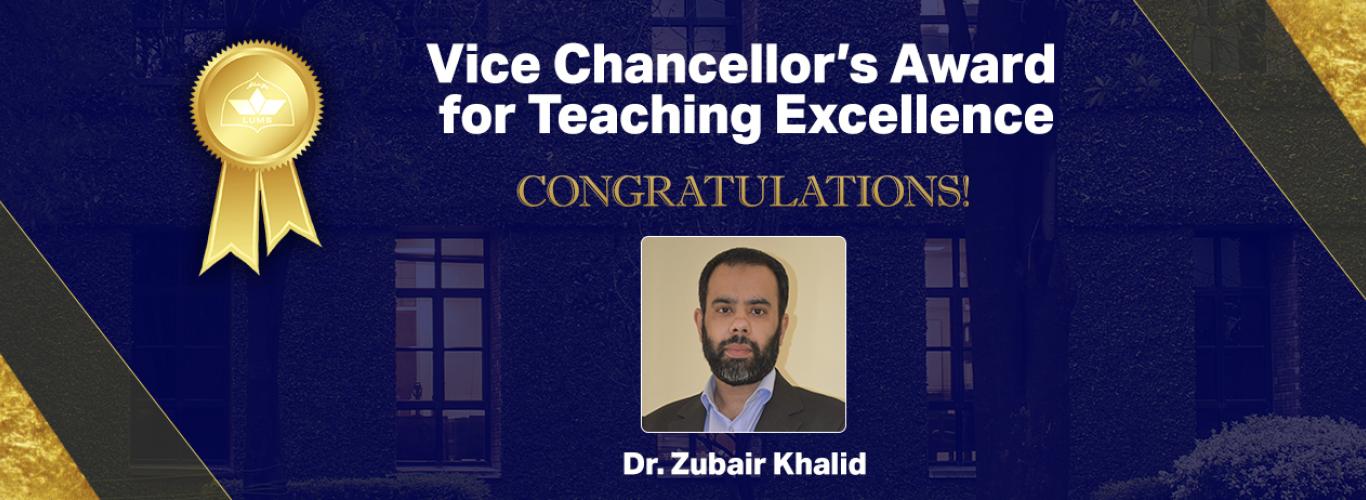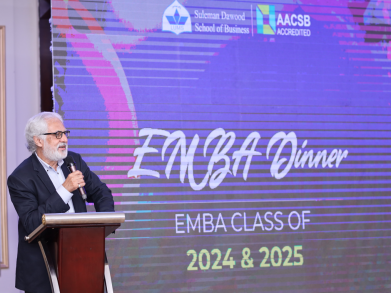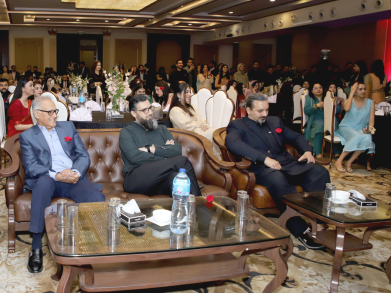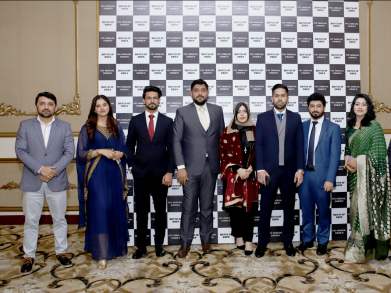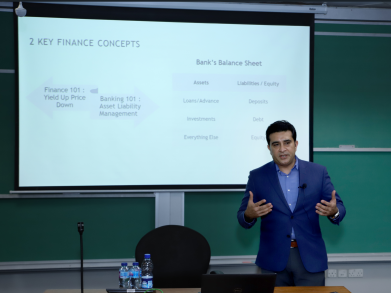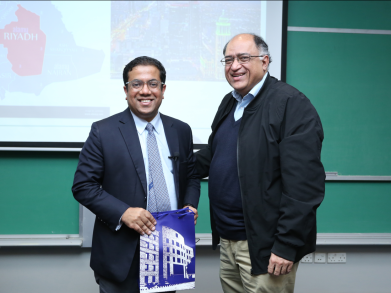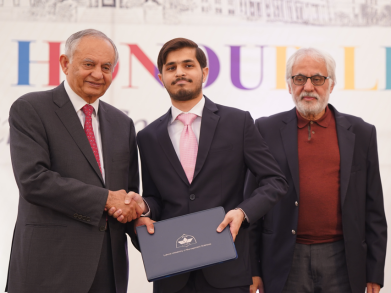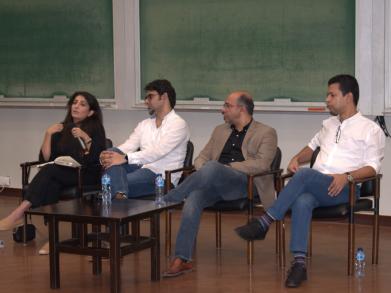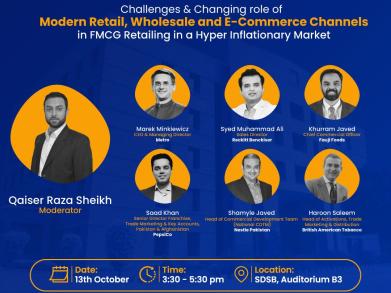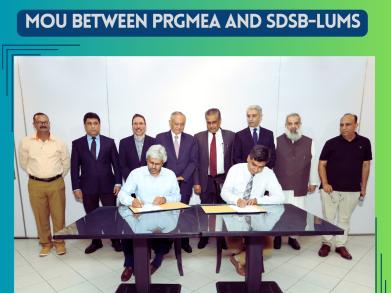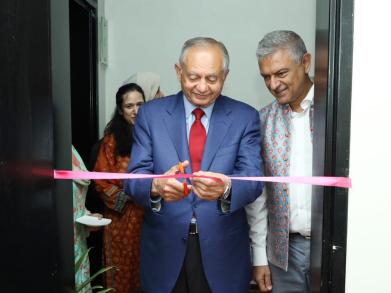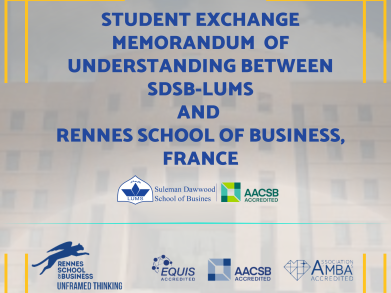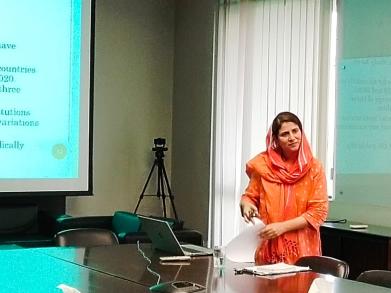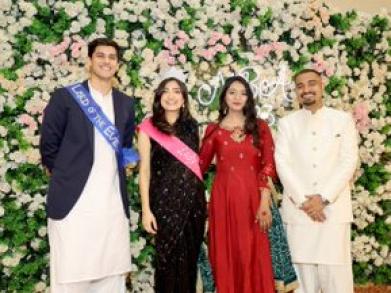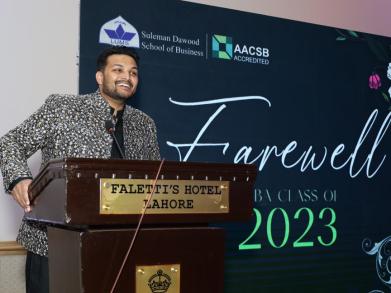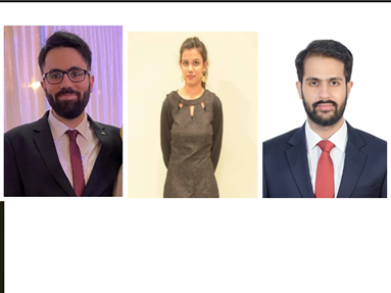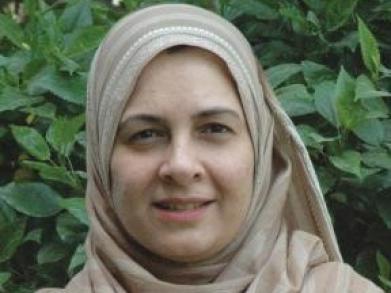In Conversation with Dr. Zubair Khalid, Winner of Vice Chancellor’s Award for Teaching Excellence
To Dr. Zubair Khalid, “good teachers are artists who know the science of teaching.” Dr. Khalid has been praised by many at LUMS for his dedication towards student learning and his drive to find innovative ways to teach multidisciplinary topics in electrical engineering. His goal is to inspire students to learn by making Math meaningful. As one student described, “He views every aspect of the course from multiple perspectives to find the most impactful way of getting his point across. And he goes the extra mile to ensure that there is no doubt left in his students’ minds.”
He encourages students to co-construct new scientific knowledge through engaging class discussions, computer simulations, real-world examples, and solving complex problems together. Dr. Khalid is confident that when his students have actively involved, it “eliminates their fear of complicated math and gives them confidence about their understanding.” He sees his role in mentoring and supervising PhD students as acts of guidance and empathetic advising – the most advanced level of one-to-one teaching in which an instructor can engage. Dr. Khalid’s extraordinary commitment to mentoring the next generation and supporting their growth as confident learners is what makes him a highly valued teacher at LUMS.
A PhD in Engineering from the Australian National University of Canberra, Australia, Dr. Khalid is a recipient of the Endeavour International Postgraduate Award for his PhD studies. He received his BSc in Electrical Engineering from the University of Engineering and Technology (UET), Lahore in 2008. He was declared winner of the University Gold Medal and Industry Gold Medals from Siemens and NESPAK for overall outstanding performance in Electrical Engineering during his undergraduate studies.
Prior to joining LUMS, he worked as an Assistant Professor in the Electrical Engineering Department, UET Lahore and as a Post Doc Research Fellow with Prof. Rodney A. Kennedy in the Research School of Engineering, Australian National University (ANU), Canberra, Australia.
Sharing his experiences of teaching at LUMS, Dr. Khalid elaborated on his style of teaching and what inspired him to become a teacher.
What inspired you to become a teacher?
I think my love of learning and a desire to transfer the love to others are the key factors I chose to pursue an academic career! There is a need to promote the love of learning and teaching provides us an opportunity to nourish and stimulate the curious mind. Our teachers invested their time and energies in guiding us towards the right path. Through teaching, we get an opportunity to give back to our society and serve our responsibility of providing knowledge, mentorship, and guidance to young adults.
What are your goals for your teaching career?
Since excellence in teaching is attained by practising a variety of skills and experiments, I believe that the focus on improving teaching skills is a lifelong commitment. My goal in a teaching career is to learn new skills, explore different strategies and experiment with research-led techniques in the transfer of knowledge (teaching) and creation of knowledge (research). Through these, I want to ensure that my students leave my classes as better learners and more important, as better human beings.
What are some of the challenges teachers face today?
Being a teacher at the higher education level, I feel that there is a need to stimulate passion and love for learning in the students at both the school and college levels. Furthermore, teachers should embrace changes in the learning process, enabled by technological advancements, by promoting collaborative learning. At the same time, there is a need to ensure that the students do not compromise on learning the fundamental concepts.
How would you describe your teaching style?
My teaching style is a combination of artistic thoughts and scientific skills. Good teachers are artists who know the science of teaching. I believe that teaching is a noble profession with a positive and lasting impact on society and culture. In engineering, teaching is an act of transfer of technology, which enables the students to comprehend and produce useful solutions to research and/or industrial problems. I always enjoy teaching and interacting with students and take pleasure by conveying the sense of satisfaction that comes from taking intellectual ownership of the learning process by discovering and understanding new concepts and ideas. I think that the students will rise to the challenge if they believe that their instructor is sincerely concerned about their understanding.
I have developed my teaching skills to make sure that my students fully apprehend the theoretical concepts and mathematical formulations related to engineering problems. I think that this objective can be served in teaching by bridging the two factors – the construction of new knowledge, that is, the delivery of the material in a clear and structured manner to the students, and the motivation of a student to participate in such construction.
Amongst your various achievements, what is one thing as a teacher that you are really proud of?
My students! My students are my assets and are most important to me. They are superstars and I want to see every one of my students rise and shine. Our students give us hope that we have a better future.
If there is one thing that you want your students to remember, what would that be?
Students should focus on learning fundamental concepts. I always tell my students to have a strong command of the fundamentals of any topic or subject they want to learn. If they have developed good foundational knowledge, they can build on it very quickly. But if they compromise on learning the basic concepts, the gap will remain forever. I also try to inform students about the importance of keeping moral values as they progress in their life and career. Unfortunately, be design or by choice, the focus on empathy, trust, morality in our education system is gone!
Are there any teachers in your life who have inspired you?
Yes, my PhD supervisors, Prof. Rodney Kennedy and Prof. Salman Durrani; my undergraduate instructors, Prof. Asim Loan and Prof. Akmal Butt and my school teachers, Ms. Rozina and Sir Amjad. Their passion for teaching and their student-centric approach enabled me to acquire and learn teaching skills. I have learned from my teachers and my collaborators the importance of giving attention to the students.
What do you find most rewarding as a teacher?
It is most rewarding and fulfilling when I see my students achieving greater heights in their lives and careers. If I could correct the trajectory or make a meaningful impact in the life of a single student, I feel I have been rewarded for my time and investment in teaching over the years.
What value does the Vice Chancellor’s Award for Teaching Excellence hold for you?
I feel honoured and humbled to receive this award because I know that so many of our professors here at LUMS are passionate and amazing teachers. This award means a lot to me as it recognises the care, attention, support and love I have for my students. I give credit to my students, my TAs, my colleagues, my department chair, my dean and the university management for providing us support and an enabling environment. I would also like to thank the university administration and the LUMS Learning Institute for introducing this award to recognise excellence in teaching.

